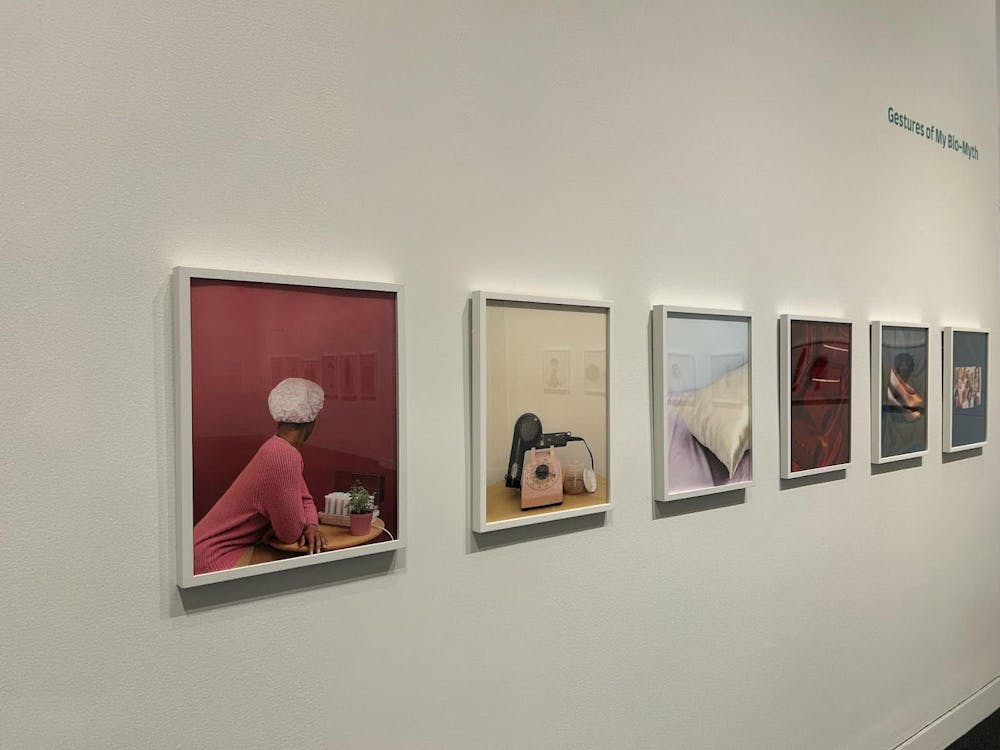Every once in a while, a foreign art house film comes along and manages to break into the mainstream movie market. When this happens, it’s usually thanks to the film’s socially relevant themes or intellectually demanding — but rewarding — storyline . More often than not, these non-traditional plot sequences offer unsatisfying endings and scenes of intense suffering to drive home a message. For better or for worse, Michael Haneke’s Amour falls short in these respects, failing to achieve those traits for which art cinema is best known.
Known primarily for his probing and often painful examinations of the dark side of the human condition, Haneke has made a lucrative career out of torturing his characters — and in turn, his audiences — with scenes and images of psychological horror and brutal emotional violence. Rather than push the crowds away, however, this seemingly sadistic method has served as an alluring hook, especially for viewers who long to be shocked and disturbed. Haneke films like 2001’s The Piano Teacher and 2009’s The White Ribbon work well precisely because they make us shudder in our seats and fear for the fates of those on screen.
In this sense, Amour, which recounts an unnerving tale of aging and inevitable death, would seem like a perfect project for the Austrian director. French film legends Jean-Louis Trintignant and Emmanuelle Riva star as Georges and Anne, two happily married charmers who appear to be settling gracefully into the peace and quiet of old age. The couple’s pleasant life begins to fall apart early in the film, however, as a failing mind and a botched surgery slowly lay waste to Anne’s initially vital physical condition. As Georges devotedly cares for his wife until the very end, fleeting visits by the pair’s daughter (played by the incomparable Isabelle Huppert) and Anne’s former pupil Alexandre (played by real-life pianist Alexandre Tharaud) serve only as reminders of the couple’s own lost youth.
Unlike the rest of Haneke’s repertoire, however, Amour never allows bleakness and cynicism to win out. As the film’s title indicates, love, rather than bitterness or resentment, ultimately triumphs in Georges and Anne’s marriage, even though this ‘amour’ sometimes manifests itself in untraditional ways. The film functions more as a sensitive portrait of a devoted couple than as a menacing assault on the emotions of its central characters and its audience. It’s a shame, though, that this sensitive portrayal ultimately amounts to such a painful snoozefest.
In the past, Haneke has gotten away with extremely deliberate pacing, largely because the sinister undertones of most of his films make even the slowest of scenes creep along with subtle intensity and intrigue. Here, in the absence of such dark underpinnings, the story moves like molasses, spiced up occasionally with a light joke or an unsettling sight. Even the film’s central performances fail to breathe life into the project, in part because Haneke has presented us with such ordinary characters. The major players feel real, but realism does not automatically beget excitement or interest.
To be fair, the writer-director does deserve some credit for turning his camera toward a situation that many of us usually refuse to acknowledge or consider until it’s forced upon us. Watching an aged woman wither away as her husband sits by her side can make for painful viewing — but not a painfully good film.






